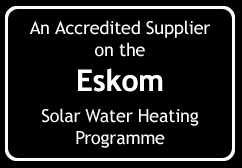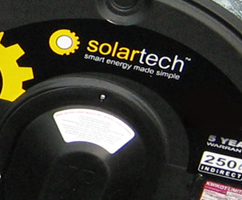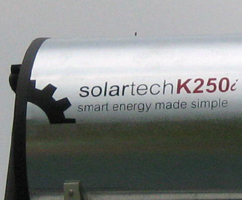

February 24th 2011
Beijing, February 24 - Chinese quality supervision authorities must enforce compulsory standards for solar water heaters to prevent poor quality and counterfeit products undermining public confidence in the industry, said an industry association leader in Beijing Thursday.Solar Water Heating is one of the strategic initiatives that is incentivised by the Eskom Demand Side Management (DSM) programme. The DSM programme was set up to assist in balancing electricity demand with what can currently be generated in terms of supply. However, proposals for mandatory standards could be two to three years away, delegates at a solar water heater quality forum heard. China?s solar water heater producers were facing fierce competition from small workshops, which put inferior products on the market at very low prices, said Zhu Junsheng, director of the Renewable Energy Branch of the Chinese Association for Comprehensive Utilization of Resources. On Feb. 13, China Central Television reported that small workshops in Haining City, southeast China?s Zhejiang Province, sold counterfeit brand solar water heaters. Without automated production, the individual workshops produced substandard tank insulation, which failed to keep the water warm, and used inferior materials to make the inner container, which led to leakages. Consumers, especially in rural areas, are attracted to the low prices, which put the brand names under pressure as their prices are almost double those produced in small workshops. ?We were shocked when we saw the news. People might become skeptical of all products. The melamine scandal did great damage to China?s dairy market, and we don?t want a similar problem in the solar water heater sector,? Zhu said. China has 4,000 solar water heater producers, but very few of them felt obliged to meet independent certification and accreditation requirements, he said. He cited the case of the China General Certification Center (CGCC), authorized by the State General Administration of Quality Supervision and Inspection and Quarantine (AQSIQ), as saying that only 30 solar water heater producers had passed its quality standards in the past five years. He said those 30 companies were not involved in the reported quality issue. ?Several other centers offer the service, so it?s not a question of lacking standards. The market has a lack of supervision,? he said. Zhu said the CGCC had submitted more than 20 recommended industry standards to the AQSIQ?s Standardization Administration. ?We are now working on mandatory standards,? he said. Zhu said that in order to meet global standards as a WTO member, mandatory standards, such as an energy efficiency identification, could take years to implement. Zhu called on companies to work with consumers against counterfeit and inferior products. ?Enterprises should open their doors to consumers by letting them visit their plants. Introducing third-party supervision is necessary for brand name businesses,? Zhu said. Solar energy is increasingly in demand in China because it is clean, energy-efficient and cheap. It is estimated that a square-meter solar panel can save about 150 kg of standard coal use annually. Many local governments have made installation of solar power systems mandatory, and many residential buildings under 12 stories are required to have solar water heaters. The government promotes solar power use through home appliance subsidies in rural areas. Last year, 243 solar water heater producers were approved for the subsidy scheme. China had an estimated 150 million square meters of solar water heater panels installed by last year, and the figure was expected to hit 300 million square meters in 2020, with an industry turnover of 300 billion yuan (45.6 million U.S. dollar), the National Development and Reform Committee forecast in 2009. China produced 49 million cubic meters of solar water heater tanks last year. The total output value reached 73.5 billion yuan, an annual rise of 22.5 percent, according to the China Association of Rural Energy Industry. Source: eco-business.com : February 24th 2011 |




